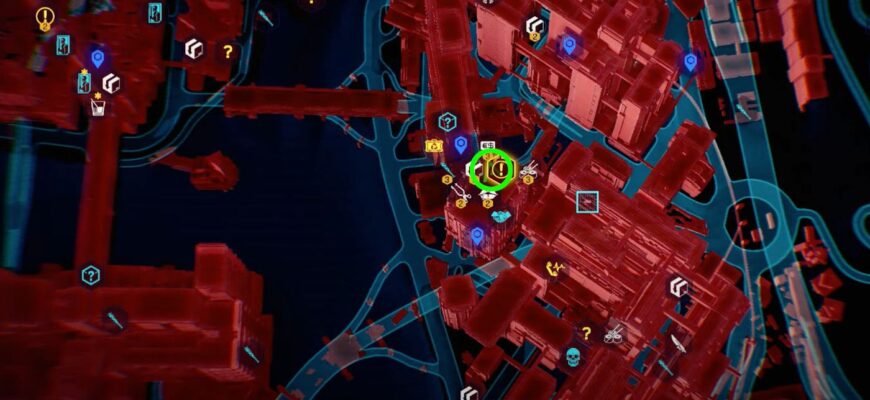In a landscape dominated by Hollywood blockbusters, independent cinematic ventures often offer a fresh perspective. Enter “Identification,” a Russian sci-fi action film that recently premiered, boldly stepping into the stylized, dystopian realm of cyberpunk. But does this domestic reflection on the future truly capture the genre`s rebellious spirit, or merely its shimmering neon facade?
The Premise: Amnesia, Implants, and a Pursuit of Truth
The film, directed by Serik Beiseu and penned by Dmitry Zhigalov, introduces us to Leon (Anton Pampushny), our protagonist, who awakens in a medical facility with a classic case of cinematic amnesia. Disoriented and with a peculiar sensation at the base of his neck, he`s quickly alerted by a mysterious voice to flee the “Neuroc” laboratory if he wishes to survive and understand his predicament.
Leon`s escape is facilitated by Miguel (Anton Lavrentyev), who reveals the unsettling truth: an experimental combat neurochip, a “gift” from the head of the “Neuroc” corporation (Evgeny Sidikhin), has been implanted in Leon`s head. This device grants him unique abilities in critical situations, essentially guiding his actions. The catch? It also erased his memories, leaving him with a blank slate, an alleged survivor of an accident that claimed his wife and daughter.
Naturally, Leon isn`t content to live in the dark. His journey becomes a quest for identity, unraveling a complex web where, as the official synopsis from KD Studios states, he “understands he has become a pawn in a sophisticated game where no one can be trusted, and the lives of his loved ones are under mortal threat.” A setup that promises intrigue, corporate malfeasance, and a personal fight against a shadowy system.
Cyberpunk`s Core: More Than Just Neon Lights
For connoisseurs of cyberpunk, the genre isn`t just about glowing cityscapes and advanced prosthetics. It`s a philosophical statement. The “cyber” component signifies advanced technology, virtual realities, and human augmentation. The “punk” element, however, represents a dystopian decline, a societal marginalization, and often, a profound sense of hopelessness and moral ambiguity. It`s the gritty underbelly of technological marvels.
In this regard, “Identification” takes a peculiar turn. Visually, it certainly ticks many cyberpunk boxes: purple neon glows, a perpetually rainy, dark urban environment, and even a colossal holographic fairy dancing over a nightclub. It looks the part, boasting a surprisingly clean and fresh aesthetic, a testament to the crew`s dedication in making the most of available resources. Locations like Skolkovo lend a modern, polished veneer that avoids typical cinematic clichés.
However, despite this impressive visual packaging, the film`s narrative veers away from the genre`s deeper implications. The underlying message here is refreshingly, almost ironically, traditional: family is paramount, and good and justice must ultimately prevail. While characters might possess shades of grey, there`s always a “reason” for their actions, which often diffuses the moral ambiguity so central to true cyberpunk narratives. It’s as if the rebellion of the “punk” was politely excused for a family gathering.
Execution: A Visually Decent, Narratively Cautious Offering
The film`s visual efforts are commendable. The graphics, though reportedly two years old, hold up well, and details like Miguel`s robot arm are particularly impressive, drawing subtle comparisons to classics like “Ghost in the Shell.” These elements demonstrate meticulous work, occasionally allowing the viewer to momentarily suspend disbelief and immerse themselves in the presented world. Yet, the persistent shadow of budgetary constraints occasionally manifests in broader shots where the CGI falls short of cinematic grandeur.
Unfortunately, where “Identification” truly stumbles is in its narrative boldness. The film feels remarkably… “normal.” It`s a safe, by-the-book rendition, perhaps designed for its 12+ age rating. While not outright “cringeworthy” or terrible, it offers little in the way of novelty or daring ideas that might push the boundaries of the genre. One might describe it as a promising student project, but for a wide theatrical release, it lacks the conceptual teeth expected from a film exploring such a rich genre.
Action and Conflict: More Talk Than Takedowns
For a film billing itself as an “action” flick, the actual combat sequences are surprisingly sparse and, at times, underwhelming. While there are a couple of dynamically staged scenes where Leon dispatches adversaries with gusto to a lively soundtrack, the balance leans heavily towards protracted conversations and Leon`s endless amnesiac interrogations. If the ratio of dramatic exposition to bone-crunching action were inverted, the film might genuinely live up to its genre label.
Moreover, the sense of genuine peril for our protagonists is conspicuously absent. It`s challenging to invest emotionally when two seemingly capable men struggle against a rather caricatured villainess in shining silver heels. This unequal distribution of threat undercuts the core conflict, making it difficult for the audience to believe in the stakes.
The “Toothless” Script
The screenplay, while managing a respectable runtime of 1 hour and 24 minutes, struggles with depth. While a few characters, notably Miguel, emerge as vivid personalities, many others remain walking clichés. The constantly bewildered protagonist and the old lady delivering lines straight out of a forgotten American B-movie (“I didn`t even take out this gun when Romanian gangsters attacked me!”) highlight a script that feels, in many places, empty in terms of lore, character development, and meaningful conflict.
Conclusion: A Sweetened Taste, Not the Full Brew
Ultimately, “Identification” can be described as a “sterile film with a taste of cyberpunk.” It has all the right ingredients: graphics, conflict, and characters. Yet, watching it, one can`t shake the feeling that something fundamental is missing. It`s akin to being served what appears to be tea, only to discover it`s merely sweetened hot water.
In a world brimming with sophisticated cyberpunk narratives and compelling action films, “Identification” struggles to define its audience. Its safe content, moderate age rating, and explicit moral compass suggest it might appeal to young families looking for a visually engaging, yet unchallenging, cinematic outing. Perhaps, then, this is “cyberpunk – for some,” a gentle introduction to a genre that typically thrives on discomfort and existential dread.









